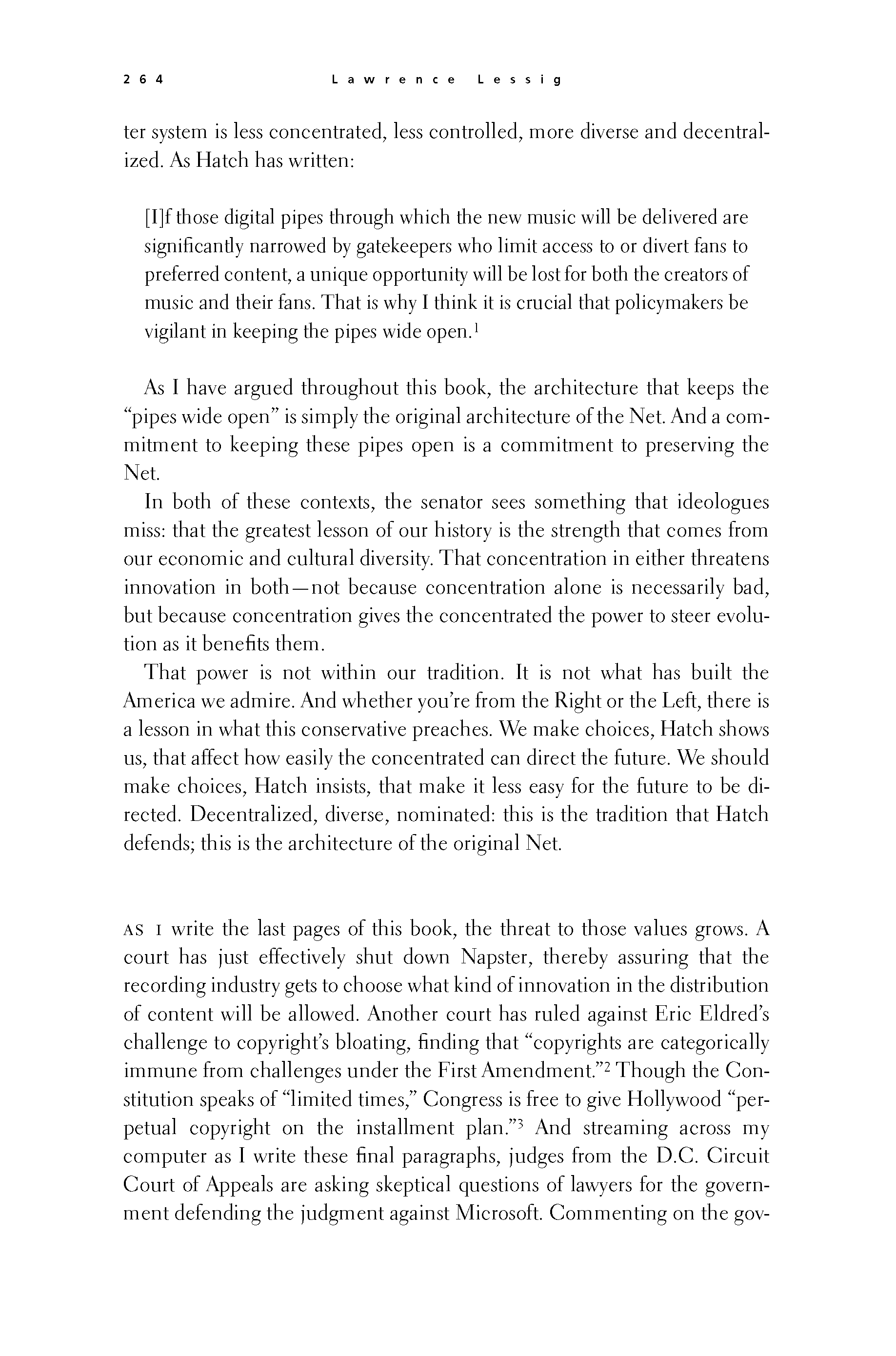 p263 _
-chap- _
toc-1 _
p264w _
toc-2 _
+chap+ _
p265
p263 _
-chap- _
toc-1 _
p264w _
toc-2 _
+chap+ _
p265
ter system is less concentrated, less controlled, more diverse and decentral-
ized. As Hatch has written:
____ [I]f those digital pipes through which the new music will be delivered are
____ significantly narrowed by gatekeepers who limit access to or divert fans to
____ preferred content, a unique opportunity will be lost for both the creators of
____ music and their fans. That is why I think it is crucial that policymakers be
____ vigilant in keeping the pipes wide open.[15-1]
As I have argued throughout this book, the architecture that keeps the
"pipes wide open" is simply the original architecture of the Net. And a com-
mitment to keeping these pipes open is a commitment to preserving the
Net.
In both of these contexts, the senator sees something that ideologues
miss: that the greatest lesson of our history is the strength that comes from
our economic and cultural diversity. That concentration in either threatens
innovation in both -- not because concentration alone is necessarily bad,
but because concentration gives the concentrated the power to steer evolu-
tion as it benefits them.
That power is not within our tradition. It is not what has built the
America we admire. And whether you're from the Right or the Left, there is
a lesson in what this conservative preaches. We make choices, Hatch shows
us, that affect how easily the concentrated can direct the future. We should
make choices, Hatch insists, that make it less easy for the future to be di-
rected. Decentralized, diverse, nominated: this is the tradition that Hatch
defends; this is the architecture of the original Net.
///\\\
As I write the last pages of this book, the threat to those values grows. A
court has just effectively shut down Napster, thereby assuring that the
recording industry gets to choose what kind of innovation in the distribution
of content will be allowed. Another court has ruled against Eric Eldred's
challenge to copyright's bloating, finding that "copyrights are categorically
immune from challenges under the First Amendment."[15-2] Though the Con-
stitution speaks of "limited times," Congress is free to give Hollywood "per-
petual copyright on the installment plan."[15-3] And streaming across my
computer as I write these final paragraphs, judges from the D.C. Circuit
Court of Appeals are asking skeptical questions of lawyers for the govern-
ment defending the judgment against Microsoft. Commenting on the gov-
[[264]]
p263 _
-chap- _
toc-1 _
p264w _
toc-2 _
+chap+ _
p265